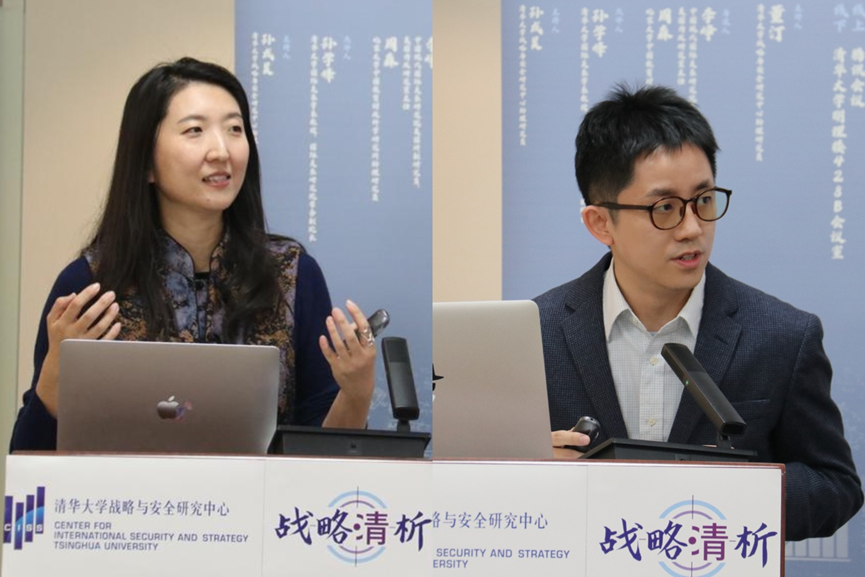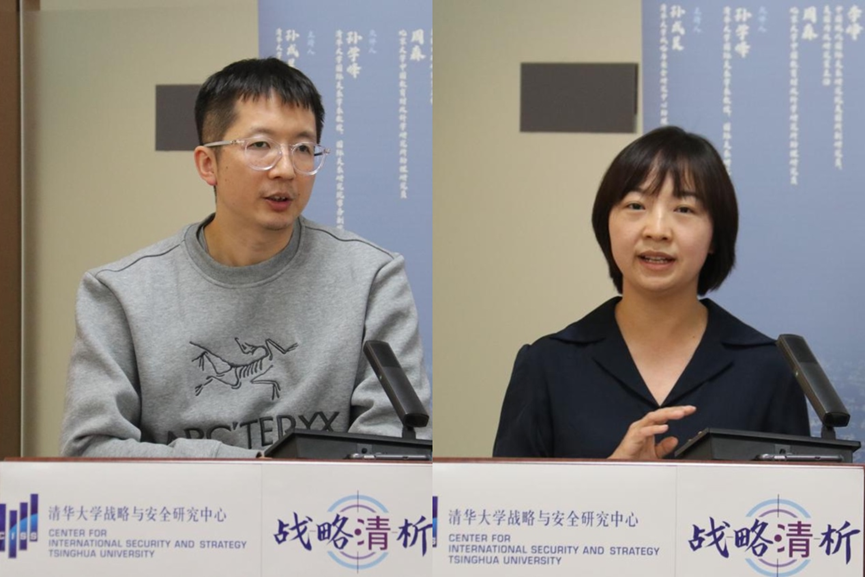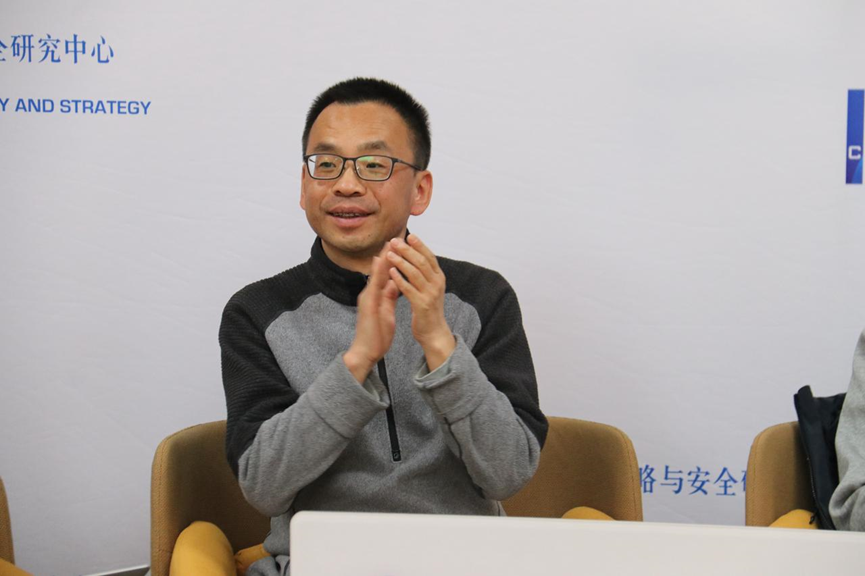In the afternoon of October 28, the Center for International Security and Strategy (CISS) of Tsinghua University held the 6th StratFocus Forum in Conference Room 428B, Mingli Building, Tsinghua University, with more than 200 participants joining the event online. The session, themed “Technology and International Relations in Power, Discourse and Facts,” featured CISS Fellow Dong Ting as the key speaker. Also among the panelists were Li Zheng, associate research fellow and director of the American Security Center at the Institute of American Studies, China Institutes of Contemporary International Relations, and Zhou Sen, assistant research fellow at the China Institute for Educational Finance Research, Peking University. The session explored technology and international relations. Sun Xuefeng, professor of international relations and executive deputy dean of the Institute of International Relations at Tsinghua University, served as the commentator of the discussion, which was moderated by CISS Fellow Sun Chenghao.

Dong Ting (left) and Sun Chenghao (right)
Dong Ting elaborated on the different roles of technology in international relations from the perspective of disciplinary paradigm theory. The core ideas are as follows. First, there are different narratives towards technology in different paradigms: during the Cold War, technology, from a neo-realist perspective, was a means for national security; after the end of the Cold War, technology was seen through the lens of neo-institutional liberalism as a new way of capital accumulation which has promoted global economic interconnectedness; in recent years, taking a constructivist perspective, the West has been trying to securitize technology while achieve value construction. Second, academic and policy research should be based on technological facts, as this may effectively reduce the impracticality of research outcomes. Third, since technology is fully integrated into today’s social fabrics, technology ethics should represent practicable, common values rather than distant standards.
Li Zheng and Zhou Sen then shared their insights. Li combined specific paths of policy analysis with research perspectives on issues related to America’s international technology strategy and made the following points. First, conceptually, ‘technology’ means different things in China as in the US, but the American perception of the scope of technology is becoming clearer, leading to changes in tech relations between the two countries. Second, the main divergence in technology between China and the US lies in the policies, whereas Chinese and American businesses have created a positive ecology for technology and innovation, with no obvious clash. Third, regarding policy analysis, in order to better understand the policies, relevant analysis could focus on the core intention of the policies and the interactive factors within to achieve such intention. Fourth, tech policy analysis should first explore the dual-use value of technologies; on top of that, other research perspectives include iteration, value chain, innovation ecology, and interest groups. Michael Porter’s competitive strategy also offers a relatively mature theoretical system.

Li Zheng Li (left) and Zhou Sen (right)
Starting from higher education finance amid US tech containment, Zhou Sen explained how universities in the US engage in defense technology and manage their funding in three aspects: First, the universities participate in defense research in three ways – through individual participation, as federal institutes, and as academic institutes; second, federal research funding can be used as indirect reimbursement, as well as to cover doctoral and postdoctoral costs; third, when it comes to international research cooperation, the supply of certain research equipment is not open to Chinese universities, but this could mean a good opportunity for China’s independent development of such instruments.
Professor Sun Xuefeng then shared his comments on this discussion, noting that a constructive dialogue on the impact of technology on international relations should be built on established facts and engage existing theories.

Sun Xuefeng
The forum concluded with a Q&A session between the panelists and online audience.
About CISS StratFocus Forum
The StratFocus Forum is launched by the Center for International Security and Strategy of Tsinghua University, with the objective of fostering more talents and building an academic community on security and strategy. The forum, which is held monthly, aims to serve as an academic exchange platform for students and young scholars in the fields of strategy, security, international relations and diplomacy, where they will be invited to discuss pressing global issues and cutting-edge research in their disciplines. We very much look forward to seeing you at the forum.
